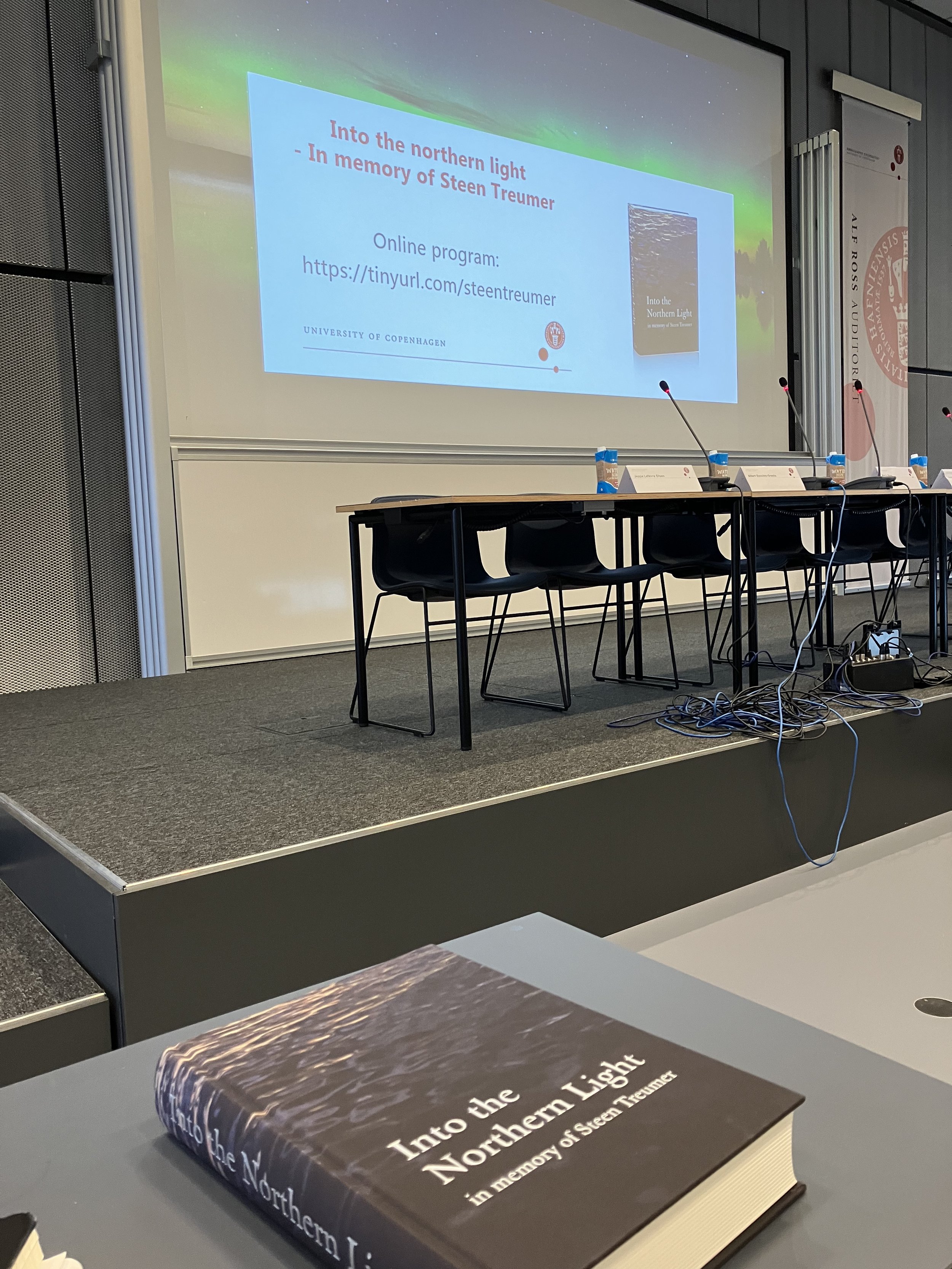On 2 December 2022, the Faculty of Law at the University of Copenhagen hosted the conference ‘Into the Northern Light — In memory of Steen Treumer’ to celebrate his life and academic legacy on what would have been his 57th birthday. The conference was co-organised by Carina Risvig Hamer and Marta Andhov, who put together a tribute fit for a king. It was an exceptional event. Not only for the academic content of the presentations and the further papers in the tribute book (which you can buy here), but also because it provided an opportunity to learn more about Steen and his approach to academia. I have since been mulling over lots of things I heard on the day. This is a rather personal reflection on what knowing more about Steen’s life means for my aspirations as a senior academic (if you are interested, here are some earlier thoughts).
It is easy to idolize the academics that have been influential in your academic path to knowledge. And it is sometimes a bad idea to ‘meet your idols’, for great ideas are not always formualted or held by great people. However, in Steen’s case, it was not only transformative to know him, but also deeply inspirational. What most struck me at the conference is not only that all the stories and anecdotes that were shared rang true with my own experience of collaborating with Steen. But also that there was so much more exceptional in the person than in the academic, and that his personality and private life were an extension of his academic persona.
Steen incarnated exceptional virtues as an academic role model. He was extremely clever, dedicated and curious. This led him to pioneer research and produce a wealth of knowledge that was ahead of the curve and that had clear practical relevance and influence. It led him to have high standards and to always seek to engage in detailed discussions of complicated and controversial topics. It was said he was competitive and always keen on winning the argument. However, he was always approachable, accessible, respectful and never punched down. He was compassionate and kind. He was measured and knew how to be forceful without being aggressive. He was patient and listened twice as much as he spoke (for he never forgot that he had two ears and one mouth, as was stressed in the conference). He sought collaborations and nurtured relationships. He always played the long game. He was an enabler of others and took pride in that. He was extremely resilient and down to earth, and could control what others would have experienced as overwhelming emotions without losing hope or letting them derail his projects, even in the face of the greatest adversity. And this is not an exhaustive list of his virtues.
Sitting there, witnessing the love for Steen and the sadness for his unjustifiedly early departure, and reflecting on all this, I realized that I am now roughly of the same age Steen had when I first met him in 2009. And I hold a roughly comparable academic position. However, I am so far from having developed the skills and the approach he already had back then that I feel rather inadequate in many aspects of my role. I won’t list my shortcomings (too long a laundry list, best dealt with in private), but the one I keep thinking about is my limited humility (or rather, my egotism and pride) and my conflation of forceful or passionate arguing with aggressive attitudes. I am increasingly aware that over the years I have probably offended more than a fellow academic (at conferences, in this blog) and that some of my views could have been presented more kindly without detracting from the academic judgement underlying them. For that, I can only offer an unreserved apology. And to commit to try my best to change attitude, be more humble and, dare I say, try to be a little more like Steen.
If I have any chance of success, it is because of the role model Steen offered (which aligns with the core values and attitudes of other role models I still benefit from) and the unwavering support I receive from many colleagues, but especially the core of my academic collaborators and friends at the European Procurement Law Group: Roberto Caranta, Kirsi-Maria Halonen, Carina Risvig Hamer, and Pedro Telles. Seeing them again, after 3 or 4 years apart, made me far happier than I could have anticipated. And this reminded me both of the joys of belonging to a community and the duty to foster the right ways of engagement for such a community to thrive. I won’t forget this again.

